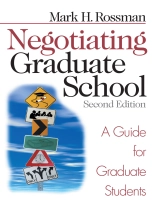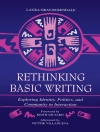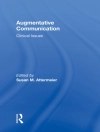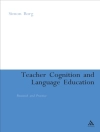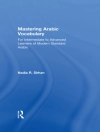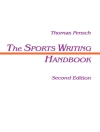Negotiating Graduate School, Second Edition provides realistic answers to the questions and concerns most often raised by students in graduate school. Incorporating three decades of personal experience working with master′s and doctoral candidates, Rossman addresses such critical issues as the research proposal, forming a committee, preparing for comprehensive written and oral exams, avoiding emotional letdowns, defending the thesis or dissertation, and publishing a dissertation. In addition to addressing the needs of graduate students in traditional settings, this revised edition includes new information responding to the concerns of graduate students in online or distance education programs. In addition, it contains many new URLs and reflects the influence of the Internet on graduate education.
Table des matières
Acknowledgements
Overview
1. Can I Really Complete a Graduate Degree?
How This Book Can Help You
Why Am I in Graduate School?
Three Categories of Learners
Motivation
Barriers to Learning
Time Management
Self-Directed Learning
Becoming a Self-Directed Learner
Need for Support
2. The Program of Study
Financing Your Graduate Degree
Am I in the Right Graduate Degree Program
Defining the Program of Study
Developing the Program of Study
Know Yourself
Controlling Frustrations
3. The Graduate Committee
Roles of Committee Members
Functions of the Graduate Committee
Getting to Know Potential Committee Members
Becoming Known by Potential Committee Members
Choosing Your Committee
Committee Member Selection Guide
4. The Comprehensive Exam
The Comprehensive Examination Process
Evaluating the Comp
Purpose of the Comprehensive Exam
Preparing for the Comprehensive Exam
Taking the Comprehensive Exam: Tips for the Written Exam
Tips for the Oral Exam
5. The Proposal and the Thesis/Dissertation
Developing the Proposal
The Thesis/Dissertation
Connecting the Proposal to the Thesis/Dissertation
Chapter One: The Problem
Chapter Two: The Literature Review
Chapter Three: The Methodology
Chapter Four: Presentation and Analysis of Data
Chapter Five: Summary, Conclusions, and Recommendations
Concluding Thoughts
6. The Defense
Understanding the Defense
Preparing for the Defense
What to Do at the Defense
The Decision
7. Now What?
Binding Your Thesis or Dissertation
Copyrighting Your Work
Publishing Your Work
Making up Lost ‘Quality Time’
Commencement
Using the Title ‘Doctor’
Avoiding Emotional Letdowns
Put Your Degree to Work
References and Selected Readings
General Style Guides
Guides to Writing a Proposal, Thesis, Dissertation, or Research Paper
Researching and Writing in the Disciplines
About the Author
A propos de l’auteur
Dr. Mark H. Rossman has been advising graduate students for his entire academic career of more than 30 years. He is Senior Faculty at Capella University and has served Capella University as Vice President for Academic Affairs and Associate Vice President for Residencies. He was Professor and former Chair of Education at Walden University and National Specialization Lecturer and Dissertation Advisor at Nova Southeastern University. He has been Professor of Education and Director of Graduate Studies at Ottawa University, Associate Professor of Adult Learning and Head of the Department of Higher & Adult Education at Arizona State University, and Assistant Professor and Head of Adult Education at the University of Massachusetts. He has chaired doctoral dissertation committees and master′s thesis committees for more than 150 graduates and has served on 300+ graduate committees. His graduates have received recognition for outstanding dissertations at Capella University, Nova Southeastern University and Walden University. He has received two awards as an outstanding dissertation advisor. Among his other honors and awards are the Distinguished Service Award from the Commission on Adult Basic Education, a Certificate of Commendation from the Mountain Plains Adult Education Association, a Fellowship from the Salzburg Seminar in American Studies, recognition as a Visiting Scholar from the University of Kent in Canterbury, England, and a Master of Humane Letters honorary degree. He is the author or coauthor of 8 books, 10 evaluative reports, and 40 chapters or articles. He has produced one film, nine self-contained instructional modules, and two audiovisual tape curriculum units. He has served on the editorial boards of four professional associations and has presented 77 papers in 12 states and seven foreign countries.
